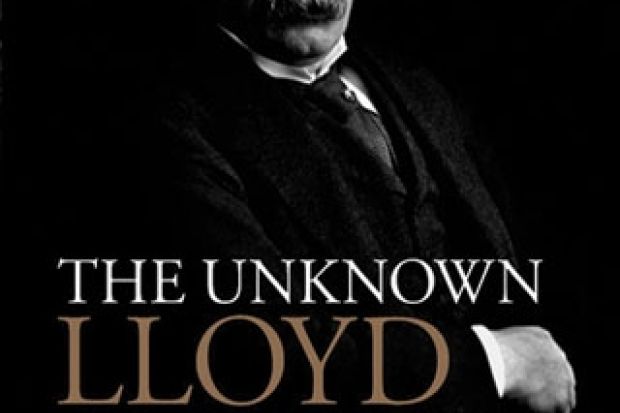Today’s politicians would give their eye teeth to have had David Lloyd George’s luck in surviving financial scandals, policy U-turns, charges of lying to Parliament and financial malpractice, and to have lived in an era whose mores and discreet press veiled an adventurous sexual life from the public gaze. Travis Crosby, in this by no means uncritical biography, makes his attitude clear in the introduction: “In their pursuit of public service and the path to governance, politicians must also engage in power-broking, deal making and often outright jobbery.” The question he raises is whether Lloyd George’s achievements in public service and government justify the rather suspect means that made them possible.
His career was marked by a bewildering succession of roles and images, the earliest of which seemed a natural progression, the later new departures. He was the outsider to the British political elite and champion of Wales and nonconformity, who, via his opposition to the Boer War and the Education Act of 1902, moved centre stage as the tribune of Edwardian radicalism; the social reformist chancellor of the exchequer who, with Winston Churchill, framed the bills that brought about old-age pensions and National Insurance, and brought in the 1909 budget that raised taxation to pay for them; and then, during the 1910 general elections, fiercely attacked the House of Lords and the aristocracy. He was also the prime minister of a coalition government that led Britain to victory in the First World War and, winning a massive electoral mandate for the coalition in 1918, continued as its leader for four years of peace; and then, after his fall from power with the withdrawal of Tory support for the coalition in 1922, the influential free-range politician who never gave up hope of regaining office.
Crosby is bold to have titled his book The Unknown Lloyd George, for there have been many biographies of this complex man. But if he comes up with few new facts, his emphasis on his subject’s character and motivations and on what made him take so many risks makes this almost a psychological study, while in his shrewd assessment of key events in his subject’s career, he adds to the book’s strength and usefulness by discussing his own conclusions in the context of debates among previous biographers. He portrays a man who was intensely ambitious, but courted conflict that could threaten his ambitions, and craved approbation while inviting criticism. Conflict and risk-taking were not confined to his political life, and marked his financial affairs, from the Marconi scandal while chancellor to the sale of honours when prime minister, as well as his relations with women. On the last, Crosby’s claim that apart from Lloyd George’s long relationship with Frances Stevenson, who became his second wife, evidence for his promiscuity remains “scanty and unreliable” is not shared by other recent biographers.
Lloyd George was famously described by Stanley Baldwin, an engineer of his downfall, as a “dynamic force, a very dangerous thing”. Crosby confirms that dynamism, but testifies to both his considerable achievements and his mistakes, misdemeanours and failures, leaving the reader to decide whether the Welsh Wizard’s accomplishments made up for the sleight of hand. What is almost certain is that he could not have survived in the transparency of early 21st-century politics. Arguably, we pay a price for this, for cautious men and women with nothing to hide and impeccable private lives rarely make statesmen of his calibre.
The Unknown Lloyd George: A Statesman in Conflict
By Travis L. Crosby
I. B. Tauris, 288pp, £30.00
ISBN 9781780764856
Published February 2014
Register to continue
Why register?
- Registration is free and only takes a moment
- Once registered, you can read 3 articles a month
- Sign up for our newsletter
Subscribe
Or subscribe for unlimited access to:
- Unlimited access to news, views, insights & reviews
- Digital editions
- Digital access to THE’s university and college rankings analysis
Already registered or a current subscriber?





